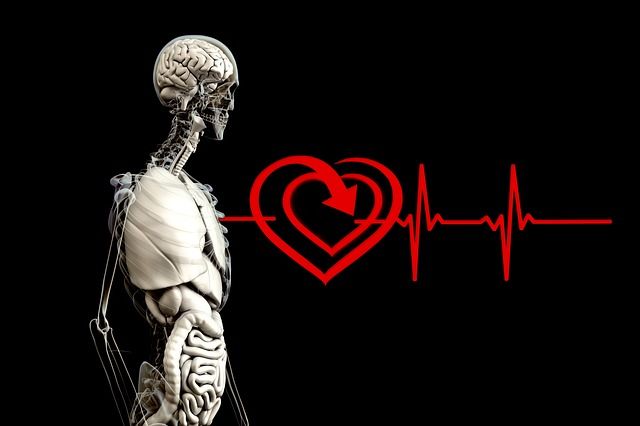High pulses. Do you know that they are? It has to do with the times in which the heart contracts causing beats per minute, which are measured through the pulse that is taken on the neck or wrist, especially on the left.

At present, technology has also advanced, in terms of devices that serve to measure it in record time, making it easier to measure it, so it is important to have one of these to know how they are, if at a normal level or too high.
The normal pulse rate for an adult person, both women and men at rest, is between 60 and 100 pulses every minute, although after doing extreme physical activity such as running or exercise, these can rise.
Therefore, this time we will be talking about high pulse rates, which do not cause any type of suffering because they rise due to some extreme case of work that is done, so keep reading and find out a little more about this topic.
What do you need for what do they mean?
- Always measure your blood pressure.
- Know how to measure pulses.
- Know the normal level of pulsations.
- Know the symptoms of arrhythmia.
- Learn a little more about tachycardia.
- Go to a health center.
- Get regular tests.
Instructions for what they mean
When you have a high pulse level, it is said that you suffer from tachycardia, but in reality it is a disease that attacks people in the electrical system of the heart and it is not normal to suffer from it, so a doctor must be the one who diagnoses it.
High pulse rates are elevations that are made before any change in physical activity, so if you subject your body to a session of extreme exercises, they will increase making you feel tired, without energy, short of breath, among many other symptoms.
The heart rate or pulsations can be taken at rest, referring to the minimum rhythm of a person to maintain their normal vital signs; therefore it is essential that these are between 60 and 100 beats per minute to be considered regular.
This is what you need to know about high heart rate
- High pulse rates are oriented towards various factors ranging from age, weight, the person’s physical condition, if they walk or have a lot of stress, sedentary lifestyle, among many others that condition their level.
- It is possible that a fast pace of life causes heart rate rises more frequently in a young person who performs various physical activities, which may or may not be fast enough due to the volume of work.
- It is important to know that the exercise to which the body is exposed is causal to improve performance and the speed with which the heart works, sending oxygen to the entire body so that it works in optimal conditions.
- Exercising, swimming, walking, running, are some of the activities with which you can achieve good performance as well as quality of life that is in favor of improving heart rate as well as the speed at which blood is pumped in the arteries.
- It is said then that sport is one of the factors that influence to improve the physical conditions of the body, in addition to keeping you in shape and also life for your heart, which will appreciate the effort to which it is subjected.
- It is important that you measure the level of pulsations several times a day, so that you have the opportunity to know if your heart is actually working at a good rhythm, at all times and thus prevent heart disease.
- There are several conditions that are caused by accelerated or too high pulsations in the body, among which we can mention: High blood pressure; the heart does not pump blood well; Obstruction of the valves; high sodium; thyroid; Cardiovascular diseases.
- High pulse rates also derive from various diseases, among which we can mention: Repeated high fevers; Stress; Anemia; High potassium level; Diabetes; Excessive smoking; Ingest alcoholic beverages; Cirrhosis.
- It is important that in the event of any symptoms of any change in the heartbeat, you should consult a specialist immediately to find out the causes that produce it if you maintain a sedentary life and do not do physical exercises.
- The increase in heart rate is usually called tachycardia and is usually caused by some event of a demanding nature to which you submit your body, fear, anxiety, surprise, among many other feelings in which strong tension is involved.
- Keep in mind that before any increase in heart rate, the patient should not self-medicate, the logical thing is to go to a health center if other symptoms such as headache, dizziness, nausea, among others, occur.
- They are violent or fast beats that the heart performs at some point, so it is important to have control and knowledge of the body in general to avoid any problem that arises in terms of the heart.
- The practice of meditation and relaxation exercises can help level the heart rate, so it is recommended to do it daily after a day of work where the pace of life is potentially accelerated.
- It should be taken into consideration to lower the level of stress to which we submit the body, so much so that avoiding contact with activities that fill us with anxiety is the best reason to be in balance mind and body.
- Take into account the possibility of relaxing for a few minutes during the day or resting for at least half an hour after a big meal, so you will be less likely to suffer from tachycardia due to overwork without taking a break.
- Perform yoga exercises, in an opportunity to improve your anxiety and thus avoid falling into an obvious nerve problem, which can affect your health by increasing your heart rate, raising blood pressure and culminating in some other disease problem.
- The constant vigilance of the motor of your body that is the heart will give you the possibility of staying full of health and vitality, therefore it is necessary that you do frequent electrocardiograms to always know the state and avoid any ailment.
- If you have relatives with diseases of this type, it is possible that you have a great chance of getting this same condition as well as high blood pressure, diabetes or cancer itself, so it is important that you take care to get checkups.
- Some medications tend to cause tachycardia, especially when you suffer from high blood pressure, so it is recommended that when you feel any symptom that is not normal, go to the specialist immediately to see if the problem is due to the treatment you are taking.
Tips for what they mean
- Avoid smoking too much, it is better to gradually quit.
- Avoid excessive consumption of alcoholic beverages.
- Do not drink drinks that accelerate the heart rate even more.
- Go to the specialist frequently.
- Perform sporadic blood tests.
- Eat a balanced diet, in addition to exercising always so that the body remains healthy and without problems.
- Adopt healthy habits.
- Do light exercise.
- Practice relaxing exercises like yoga.
- Know what beats per minute are and what they mean and how to measure beats per minute.

















